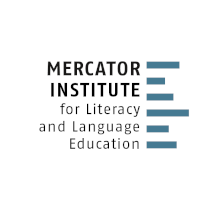Allrad - M
In many cases, children and young people grow up in multilingual social contexts. They therefore have linguistic repertoires that go beyond the linguistic means that can be attributed to the single language "German". The use of a multilingual repertoire for the acquisition of technical and communicative skills is a great potential, which, however, often conflicts with the traditional idea of school as a monolingual institution. With regard to formative and summative assessment in educational contexts, this raises the question of the construct validity of the instruments and procedures used when multilingual repertoires on the part of learners and monolingual diagnostic approaches coincide in the school context.
This is where our project comes in, in which an online-based diagnostic tool is being developed and tested that allows the receptive skills of newly immigrated pupils at lower secondary level to be assessed on the basis of their overall linguistic repertoire. The learners receive subtitled audio texts and can switch fluently between German, Ukrainian, Russian and English during reception. They then work on closed task formats relating to the text. The tasks and answer options can also be read or heard in all four languages when working on the tasks.
Pupils therefore have the opportunity to "drive with four wheels" in the construction of meaning, as they can use all the linguistic resources available to them to understand the listening texts. Teachers can identify two zones of further development on this basis: In addition to comprehension ability in German, they can also assess language-independent comprehension ability and thus get a picture of their learners' full potential as well as impulses for the design of multilingual learning opportunities. Research approaches concern the exploration of psychometric properties of the tool and the question of how learners make use of the opportunity to use their entire linguistic repertoire. In addition, the needs of teachers in dealing with "Allrad-M" will be examined.
At a glance
Aim | Gaining knowledge on the didactic practicability of the developed tool and subsequent dissemination. |
|---|---|
Cooperation | Prof. Dr. Evghenia Goltsev (University of Koblenz) (https://www.uni-koblenz.de/de/philologie-kulturwissenschaften/germanistik/team/prof-dr-evghenia-goltsev) |
Duration | since 2022 |
Project management | Dr. Christoph Gantefort Prof. Dr. Evghenia Goltsev (University of Koblenz) |
Involved People | Teresa Barberio (Uni Münster) Lukas Busch (WHB) |
